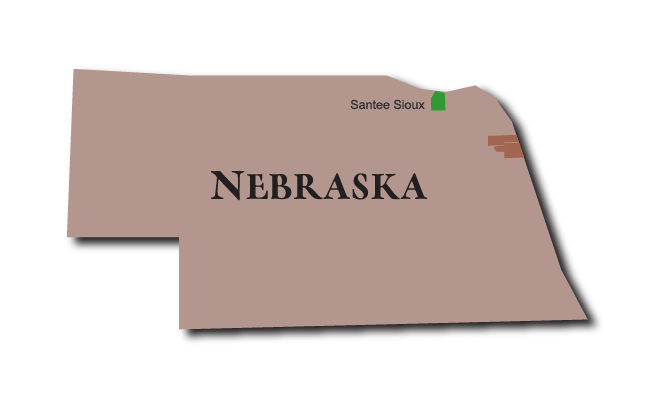
The American Indian Relief is a 501(c)3 nonprofit charity. We rely on your generous support to continue our work.
Donate today at www.aircprograms.org/donate
Page printed at:
http://secure.nativepartnership.org/site/PageServer?pagename=airc_res_ne_santeesioux&printer_friendly=1
Reservations
Nebraska: Santee Sioux Reservation
About the Santee Sioux: The Santee Sioux Tribe is part of the Great Sioux Nation, which originally occupied lands that extended from eastern Minnesota to the Big Horn Mountains. The Black Hills of South Dakota sit in the center of the Sioux Nation’s former lands and are sacred to Lakota and Dakota people. The 1868 Fort Laramie Treaty greatly reduced the Great Sioux Nation’s lands. In 1874, General Custer and his 7th Cavalry entered the Black Hills and found gold, violating the Treaty. The ore’s discovery precipitated a gold rush that led to the battle of Little Bighorn. The Sioux refused to sell or lease the Black Hills and continue to maintain that people living there are violating their Treaty.
History of the Reservation: The Santee Sioux were initially moved to a site on the Missouri River, 100 miles from Fort Randall . Starvation and diseases contracted from white settlers plagued the Sioux during their first three years on this Reservation. The government moved the Santee Sioux to their current Reservation along the Missouri River in 1863. The Homestead Act that provided land for non-Indian settlers was responsible for the reduction of the original reservation lands by fifty percent. When the Gavins Point Dam was built on the northern portion of the reservation, creating the Lewis and Clark Lake, much of the good river bottom land farmed by the Tribe was forever submerged. The community of Fort Thompson which included schools and a hospital had to be completely relocated to higher ground. Unfortunately the schools and hospital have never been rebuilt.
Life on the Reservation: The Tribe relies primarily on cattle ranching and farming. There is a convenience store, Laundromat, fast food shop, arts and handcrafts shop and a small motel in the community. The tribe houses a health center, which features a nutrition center, an alcoholism program, a heart program, and a social services program. There is no public transportation on the reservation. The nearest bus service is in Sioux City, Iowa located 110 miles to the east. With the unemployment rate at 73%, two out of five Santee Sioux live below the poverty line. How can I help?
Santee Sioux on the map: North-central Nebraska.
Tribal enrollment: 2,662.
Tribal population: 876.
